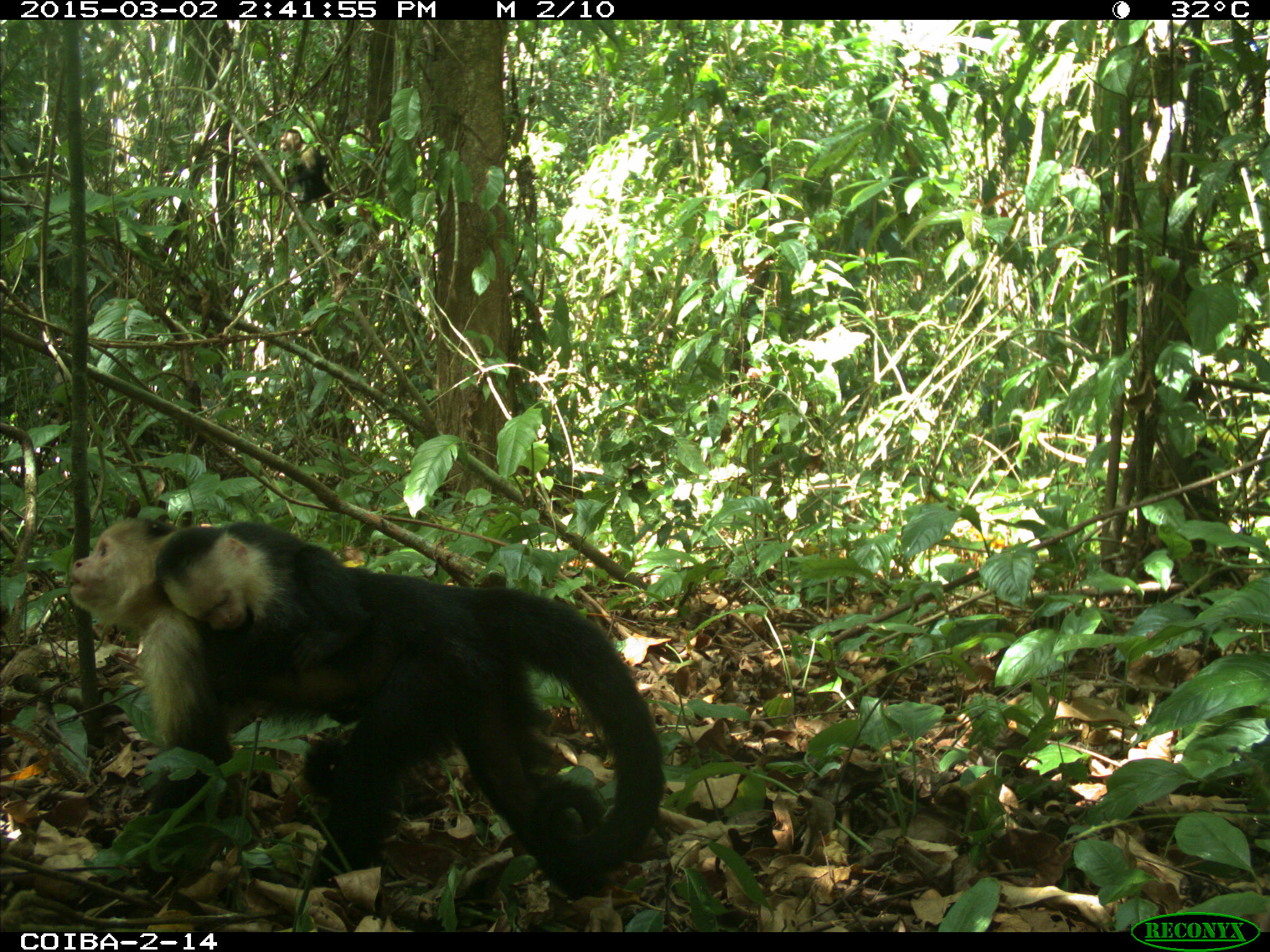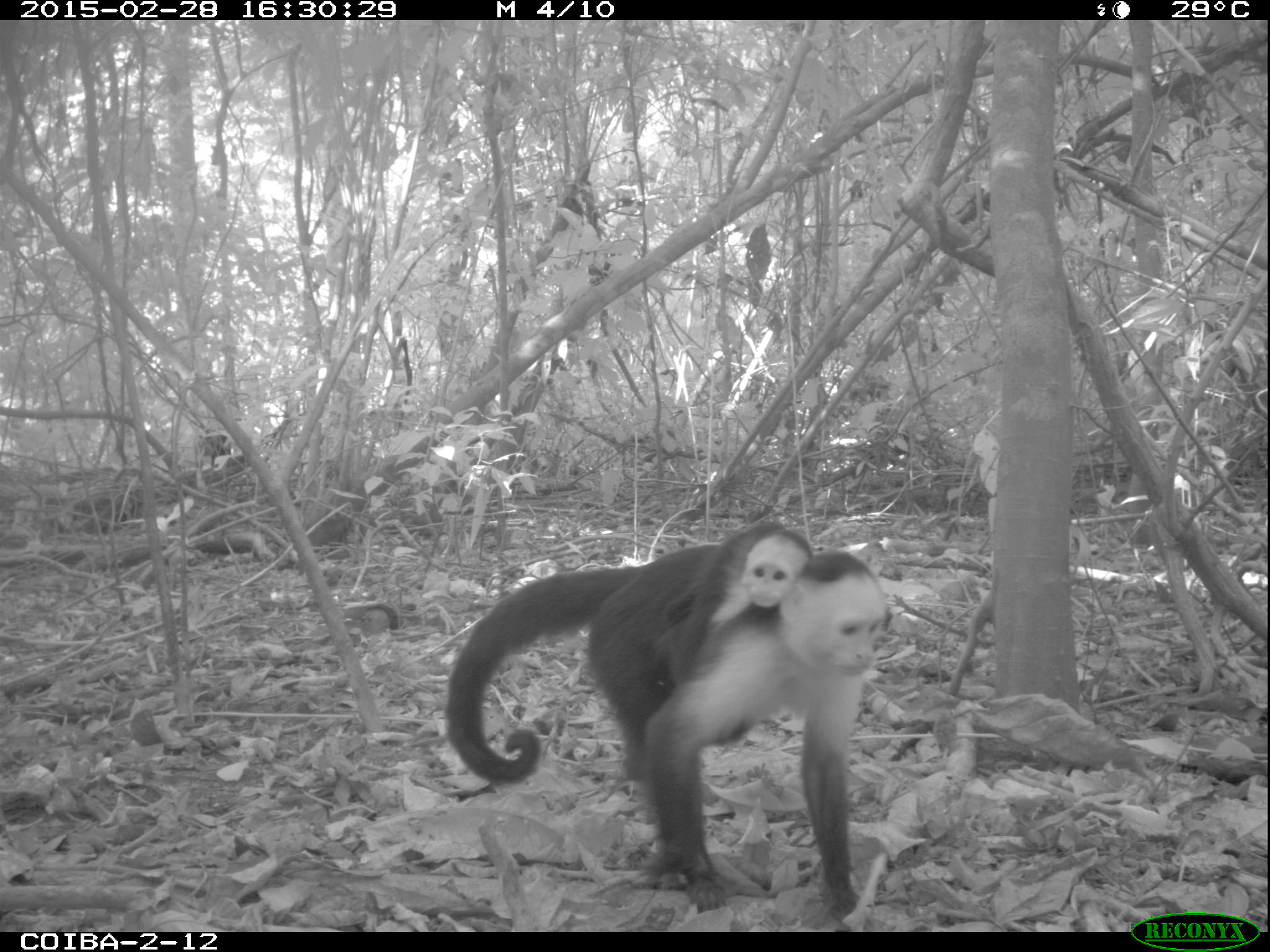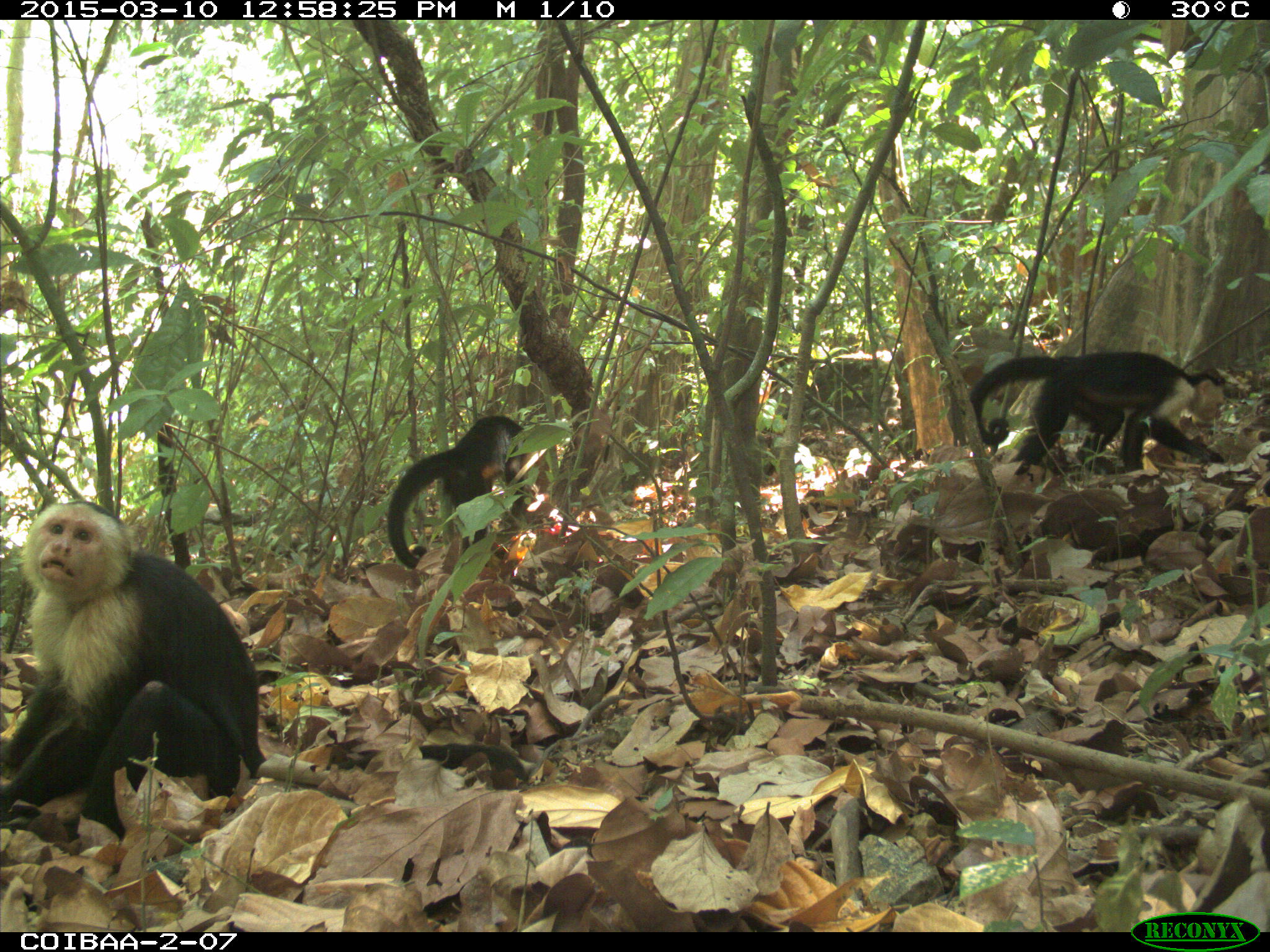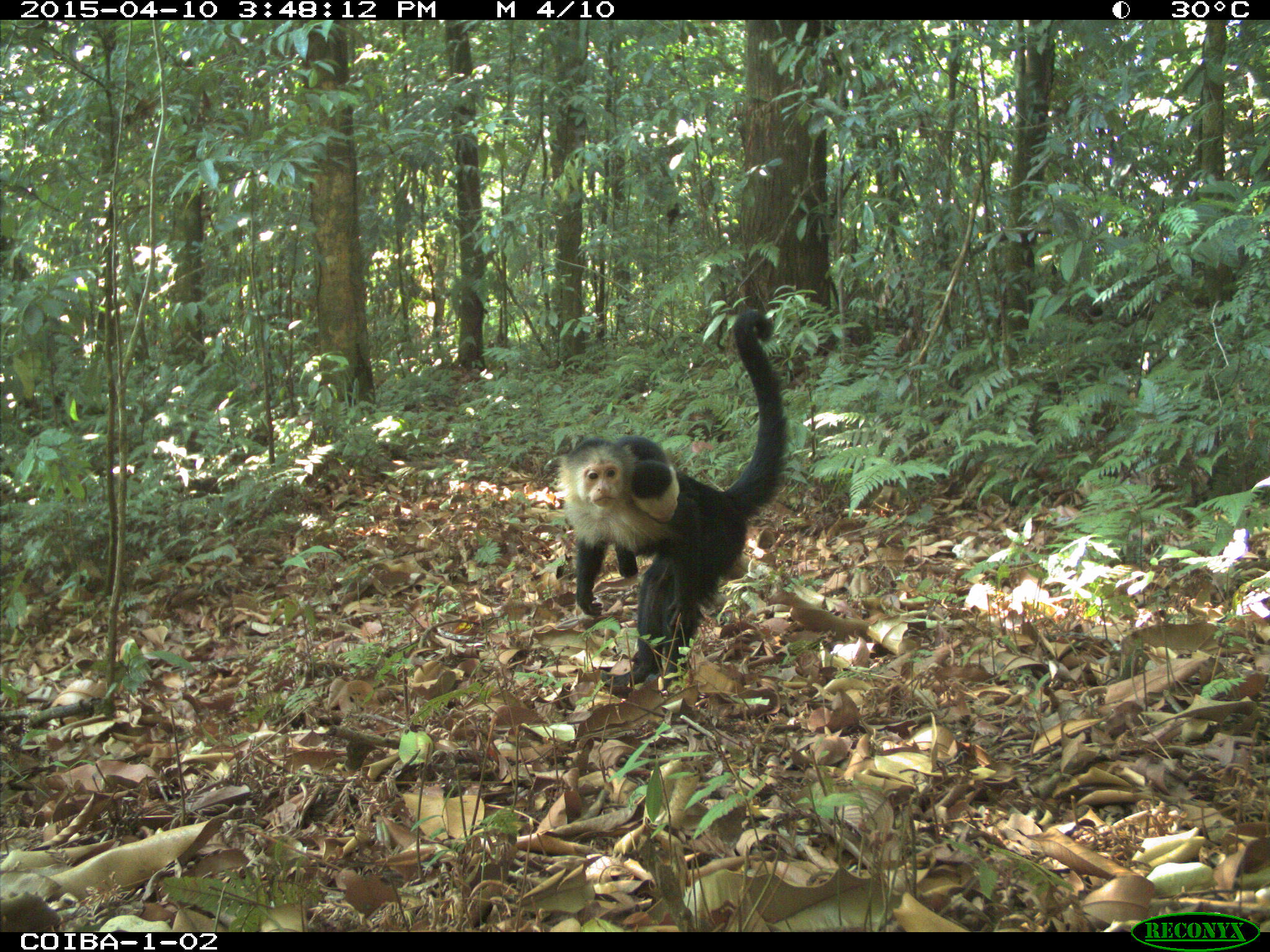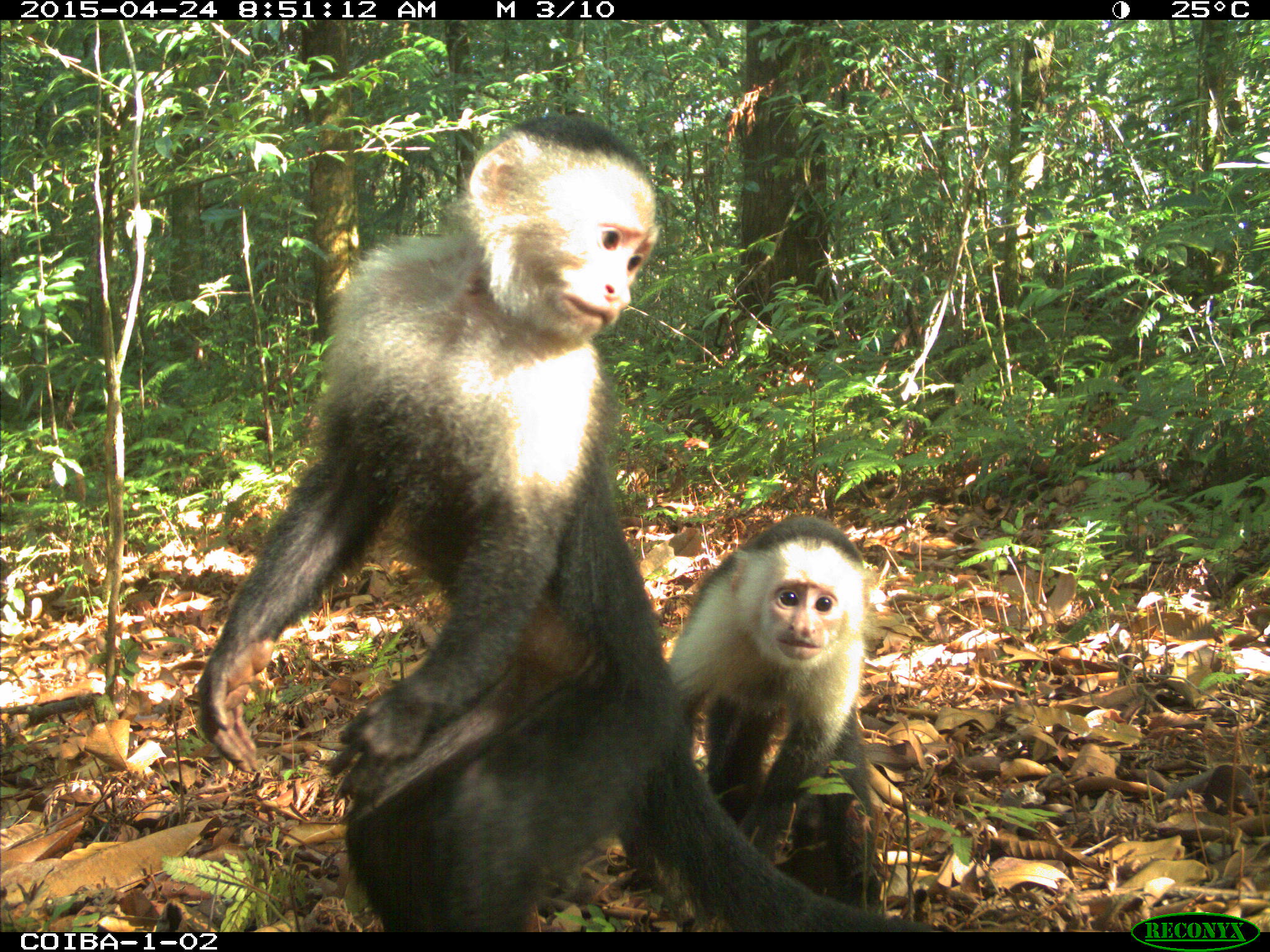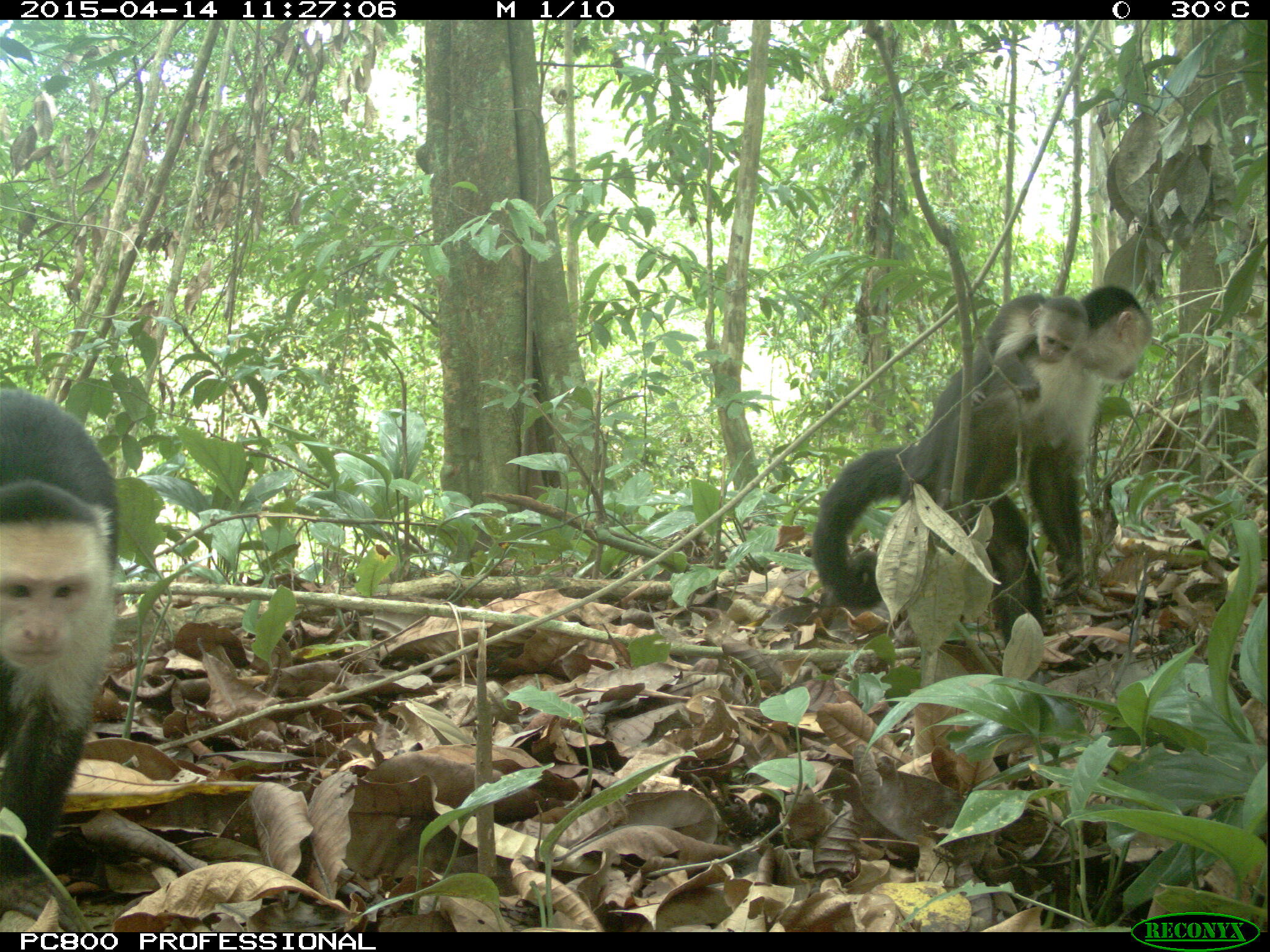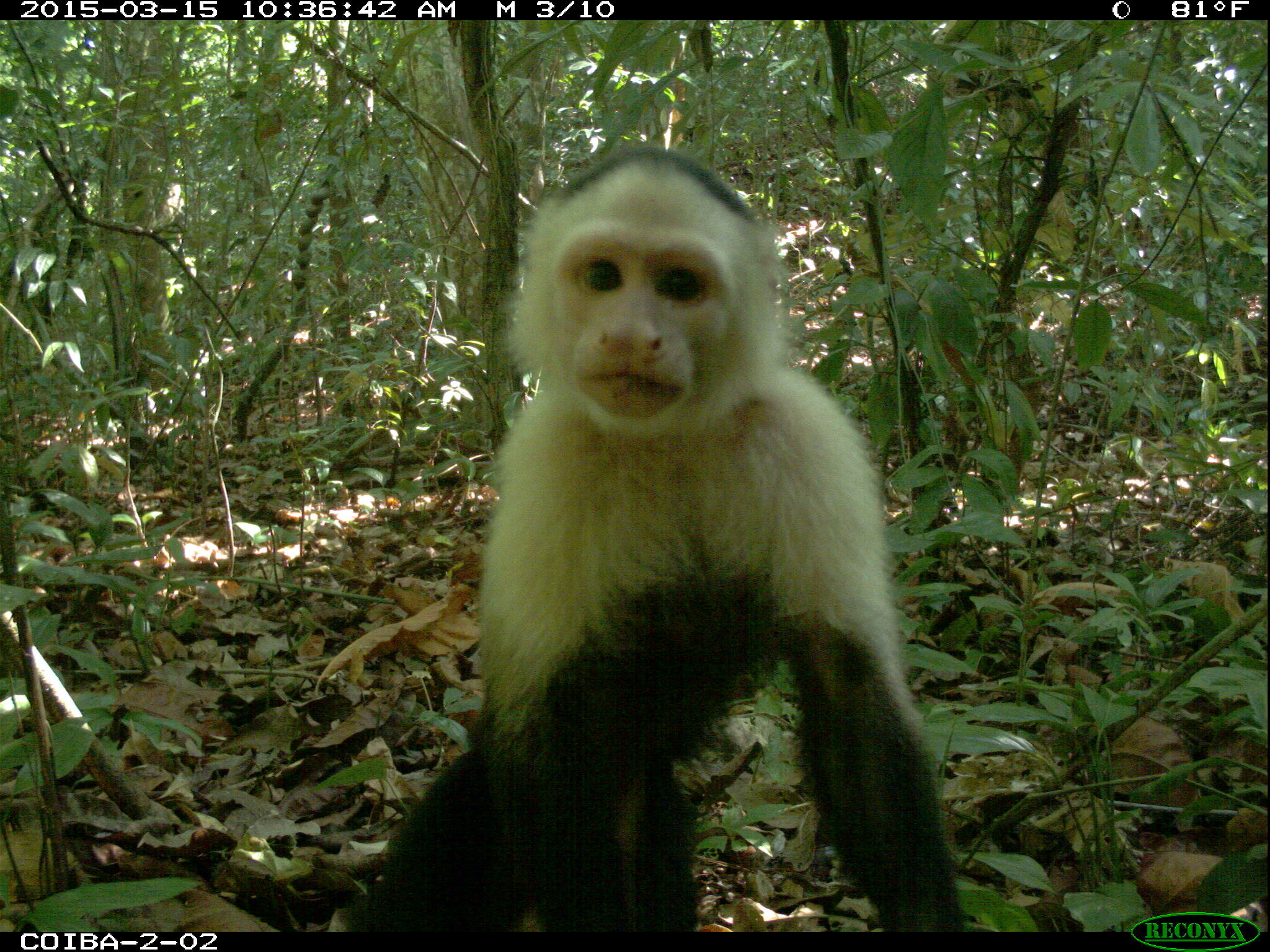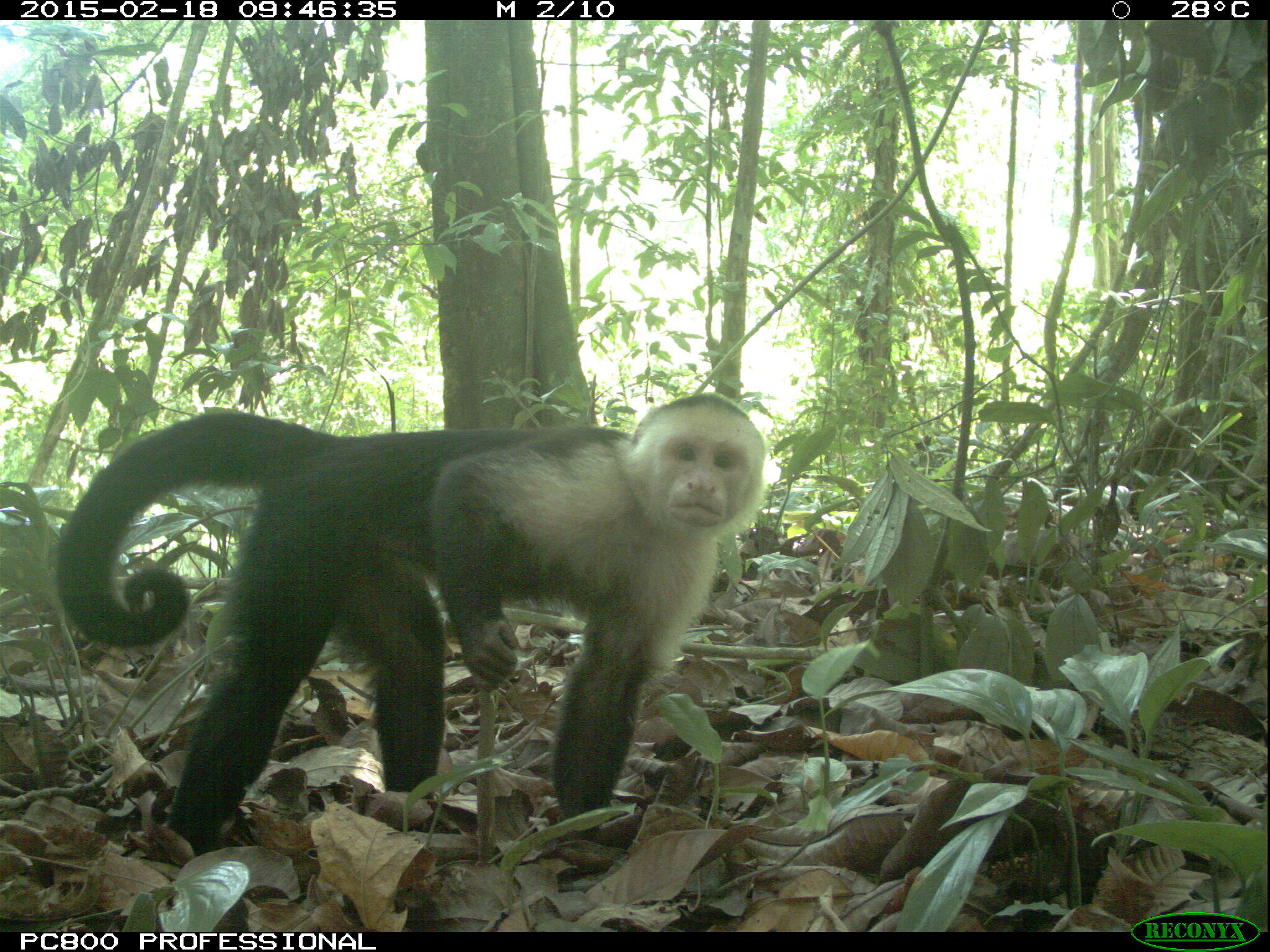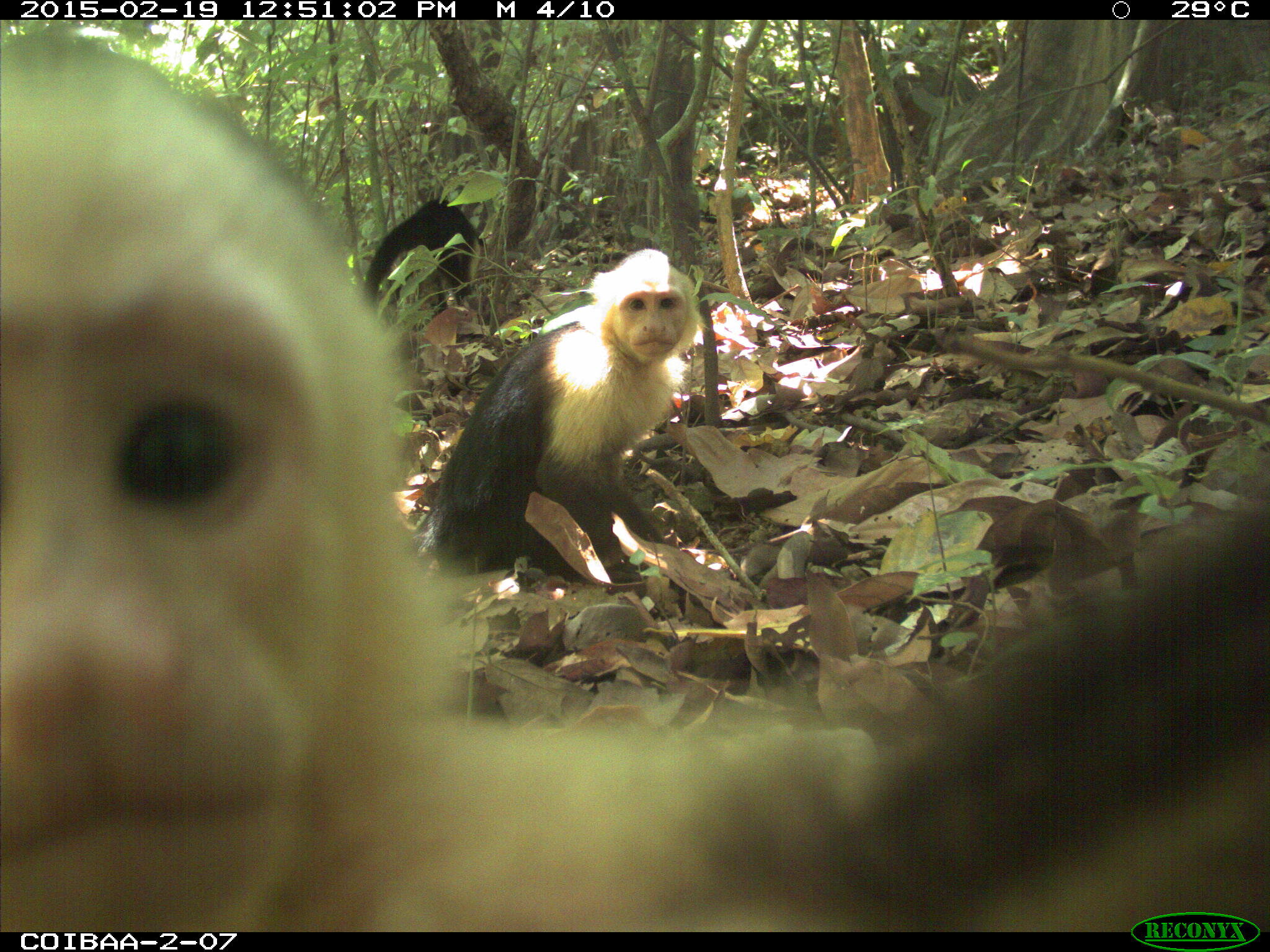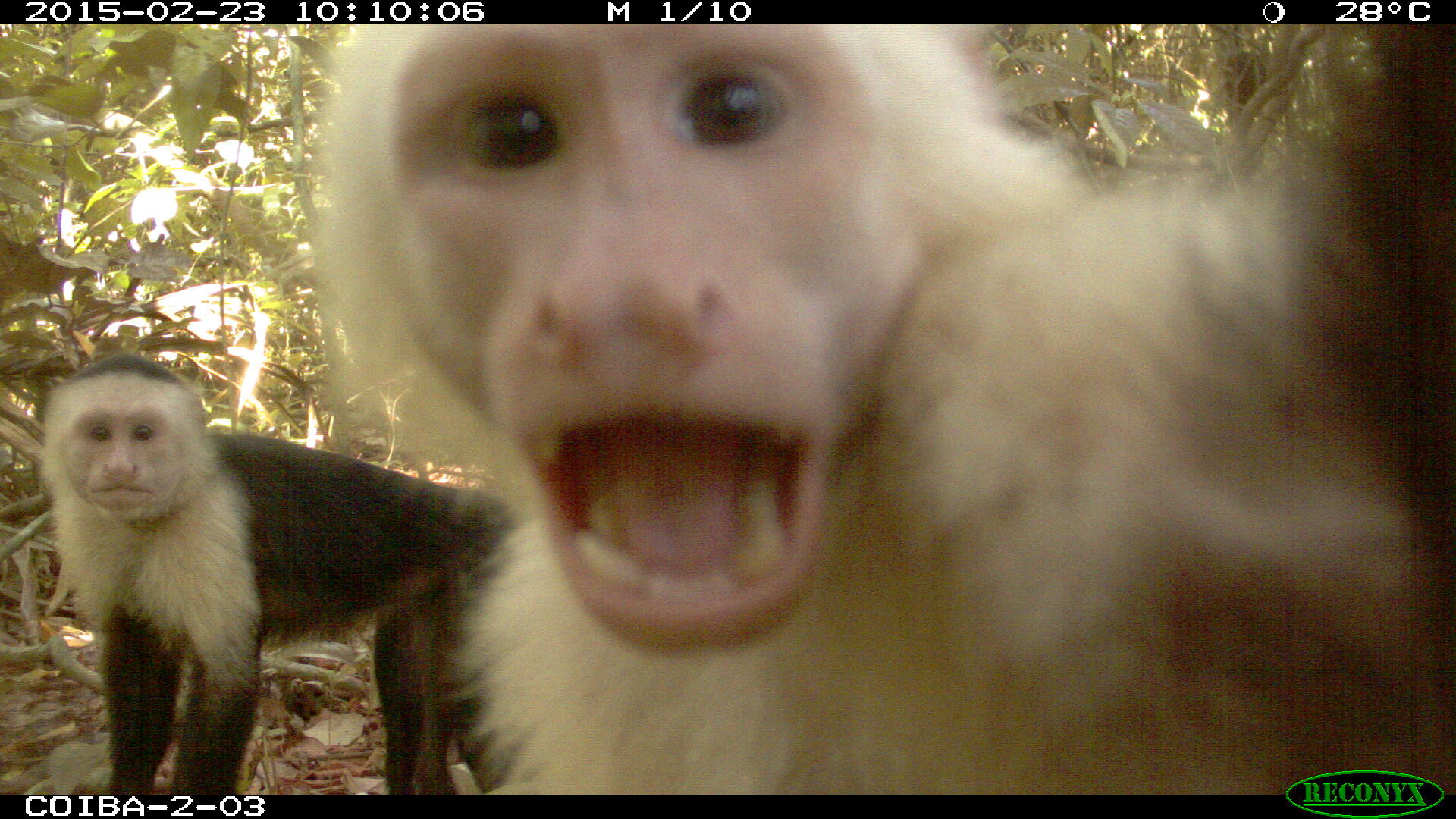Capuchin's monkey: Expansion into the Terrestrial Niche on Predator-free Islands
In collaboration with: Patrick A. Jansen, Meg Crofoot, and Mark Grote
What are the ecological pressures preventing terrestrial locomotion on New World Monkeys?
Reduced predation is hypothesized to be an important advantage of arboreality for many mammal species, including a number of primates. However, whether predation risk actually constrains terrestrial behavior has never been empirically tested. We collected data on a natural experiment, comparing terrestrial behavior in populations of white-faced capuchin monkeys (Cebus capucinus) that inhabit two islands on Coiba National Park, where terrestrial predators are absent, with populations from three mainland sites inhabited by terrestrial predators.
Find out what capuchin monkeys do in the absence of terrestrial predation risk in our published paper:
Increased terrestriality in a Neotropical primate living on islands with reduced predation risk.
Pd: This is my first paper as first author!
Funded by: Coiba Bioblitz, SENACYT, Packard Foundation Fellowship, and STRI.
